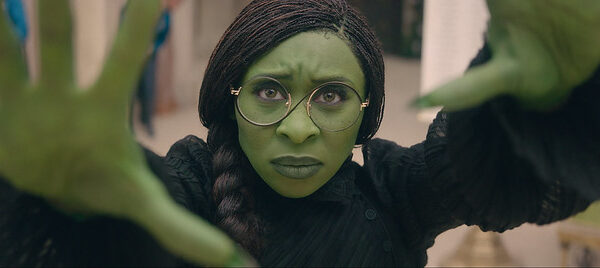When “Black Panther” starring Howard University alumnus Chadwick Boseman was released in 2018, the film was met with critical acclaim and was often regarded as the best Marvel Cinematic Universe film to date. Four years after the beloved film debuted, its sequel “Black Panther: Wakanda Forever” has hit the big screen nationwide, once again highlighting social issues within the film’s fantastical story.
HBCUs, including Howard University, had the opportunity to watch “Black Panther: Wakanda Forever” early on Wednesday, Nov. 9. Advanced screenings were available to students involved with the HBCU 20×20 Foundation, a national nonprofit organization that offers students internships and job opportunities.
After the immense success of “Black Panther” and “Avengers: Endgame,” fans were excited to see Boseman return for the sequel to director Ryan Coogler’s 2018 film. Excitement, however, quickly dissipated after Boseman’s sudden passing on Aug. 28, 2020.
Boseman’s passing drastically changed the trajectory of the sequel, forcing the creatives behind the scenes to rewrite, rework and reimagine what the follow-up would be. What was created was “Black Panther: Wakanda Forever,” a daring, confident, and emotionally fulfilling film that not only pays tribute to Boseman’s legacy but pushes the boundaries of what a superhero film can be, creating a new bar for the Marvel Cinematic Universe (MCU). The movie chooses to focus on character intention and development rather than spectacle, although there was no shortage of action.
“Wakanda Forever” begins with striking emotion, acknowledging the death of Boseman and therefore, the death of King T’Challa. T’Challa’s sister, Shuri, played by Letitia Wright, becomes the emotional anchor of the film. Throughout the movie’s nearly three-hour runtime, Shuri struggles to come to terms with her brother’s death, choosing to bury herself in technology and work instead of facing her grief head-on.
Shuri’s mother, Ramonda, played by Angela Bassett, becomes the Queen of Wakanda after T’Challa’s death. Similarly, Romonda struggles to cope with the loss of her son. Still, her grieving process leans more on Wakandan tradition rather than technology, a point of contention between her and Shuri.
Returning characters like Okoye, played by Danai Gurira, and M’Baku, played by Winston Duke, have much more screen time this time around. Supporting characters in “Black Panther” are pushed to the forefront, using their motivations and grief to support Shuri and Wakanda. The MCU, however, still has an expansive world to build, which means new characters must be introduced.
Riri Williams, also known as Ironheart, played by Dominique Thorne, makes her superhero debut in the film. Ironheart, a young genius college student, has an affinity for building new things, similar to Tony Stark. Her intellect is put to use in the film, sharing moments of technical jargon with Shuri while also functioning as the film’s levity.
Unlike most MCU movies, “Wakanda Forever” doesn’t indulge in quick, witty humor sprinkled throughout every scene. Director Ryan Coogler recognized the gravity of Boseman’s passing, choosing to make a drama that uses humor to elevate its characters, not undermine them.
The introduction of Mexican actor Tenoch Huerta as Namor, the leader of a Mesoamerican-inspired underwater kingdom called Talokan, brings another layer of cultural representation to the film. The in-depth treatment Wakanda was given in “Black Panther” is also given to Talokan, showing viewers a peek into the Talokan way of life and the empire Namor wants to protect.
“Namor was a great antagonist. I didn’t agree with what he was doing, but I loved him as the anti-hero,” Natalia Wilson, a junior honors political science major, said. “I was happy to see representation of latine indigenous culture. I think this is what makes Black Panther even more significant. The films have truly opened the door not just for us as Black people, but for the representation of other marginalized groups on the big screen.”
Coogler’s deft direction and the cast’s powerful performances, specifically from Bassett and Wright, left some audience members in tears, both of joy and sorrow. Once the credits started to roll, sobbing ensued, and people hugged each other; it was a moment that felt unified by a single film’s intention of accepting death for its inevitability, and in return, celebrating life.
“When I say I cried, I truly sobbed at several points in the film,” Wilson said. “I think what made the experience so unique and special was that everyone around me was sharing the same emotional response. I just felt so connected to the story and the world all at once.”
Although “Wakanda Forever” was largely self-contained in its story, seeds were still planted for upcoming Marvel projects.
“Black Panther: Wakanda Forever” had the immense task of following up on a film that had a huge impact on the Black community. Not only did it have to remain faithful and respectful to Boseman’s legacy, but it also had to continue the MCU story and set up an entirely new one at the same time.
“Wakanda Forever” is out now in theaters everywhere.
Copy edited by Alana Matthew













